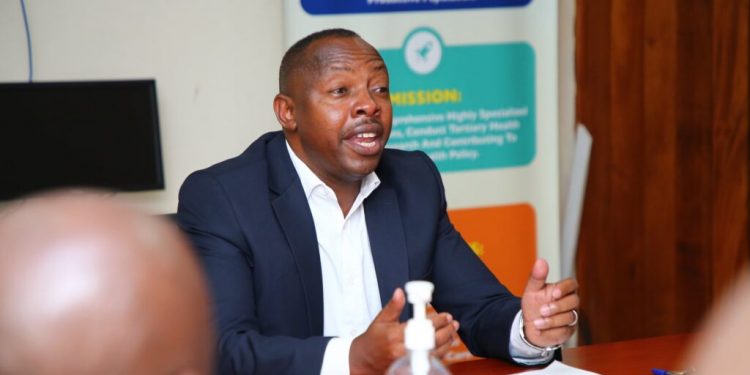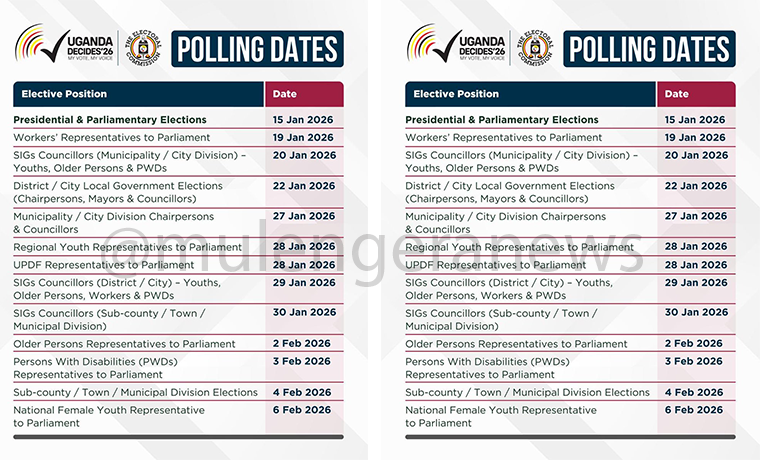By Mulengera Reporters
Mbarara Regional Referral Hospital has raised concerns over the increasing cases of monkeypox, warning that patients are being mismanaged due to inadequate government support. Hospital officials say the government has only provided gauze and iodine for treatment, while the isolation unit is already at full capacity, forcing new patients to be admitted in tents.
Dr. Deus Twesigye, the hospital’s director, issued the warning while appearing before Parliament’s Health Committee to discuss the hospital’s 2025/26 Ministerial Policy Statement. He revealed that the hospital has also failed to provide meals for monkeypox patients, who are now catering for their own food.
“I feel we are mismanaging these patients, and the numbers are increasing,” Dr. Twesigye said. “We are unlucky that we only received gauze, iodine, and grafts from the National Medical Stores—nothing else. On top of that, we have only volunteers caring for these patients. We have one doctor, and the rest are nurses.”
He added that the hospital’s isolation unit, which has a bed capacity of 28, had already exceeded its limit, with 29 patients admitted as of yesterday.
“We have started admitting patients under tents. At the beginning, we hoped the Ministry of Health would swiftly intervene, but that has not happened. Initially, we tried to provide food for the patients, but we eventually failed, and now they are feeding themselves,” he said.
Dr. Twesigye decried the lack of government support, noting that the hospital relies on volunteers whose attendance is unreliable.
“You can imagine relying on volunteers—one morning they may decide not to show up. Members, we are scared. The monkeypox infection rate is escalating,” he told the committee.
Call for Hospital Elevation
Hospital administrators also appealed to Parliament to elevate Mbarara Regional Referral Hospital to the status of Mulago National Referral Hospital, arguing that its specialized services surpass those of other regional referral hospitals. They said the current classification limits the hospital’s access to essential medical supplies from the National Medical Stores.
“It is difficult to offer specialized and super-specialized services under the same bracket as other regional referral hospitals,” Dr. Twesigye said. “If Mbarara cannot be designated as a national referral hospital, it should at least be recognized as a special regional referral hospital. We offer services similar to those at Mulago, yet we cannot access some commodities due to our current status.”
Breakdown of X-Ray Services
Dr. Twesigye also informed the committee that Mbarara Hospital had suspended X-ray services due to the repeated breakdown of its outdated machine.
“We have not been able to offer X-ray services. Our hospital owned one of the oldest machines, which kept breaking down every month. Eventually, the machine’s engine failed completely, and replacing it has been a challenge,” he said. “Fortunately, we wrote to the Permanent Secretary, Dr. Diana Atwine, who recently responded to our request.”
HIV/AIDS Service Integration
Following the suspension of U.S. financial aid, all agencies were required to integrate HIV/AIDS services into their budgets. However, Dr. Twesigye said this has been a challenge for Mbarara Hospital due to the specialized nature of its services.
“We are struggling to integrate these services. Our outpatient clinic categorizes patients under super-specialization, meaning we no longer have general physicians readily available to attend to HIV/AIDS patients,” he explained. “This technical challenge has made integration difficult. We are consulting on the best way forward, but the process remains a struggle.”
Lack of Medical Equipment Maintenance Workshop
The hospital also highlighted challenges caused by the lack of a medical equipment maintenance workshop. Currently, hospital administrators seek repair services from Kabale Regional Referral Hospital, but they are often turned away due to budget constraints.
“Mbarara is probably the only regional referral hospital without a medical equipment maintenance workshop,” Dr. Twesigye said. “We don’t have a budget for repairs, and when we seek assistance from Kabale, we are often denied. We cannot even supervise or repair equipment within our own facility.”
The hospital has urged Parliament and the Ministry of Health to address these pressing issues to ensure effective service delivery and improve patient care-Parliament watch. (For comments on this story, get back to us on 0705579994 [WhatsApp line], 0779411734 & 041 4674611 or email us at mulengeranews@gmail.com).































